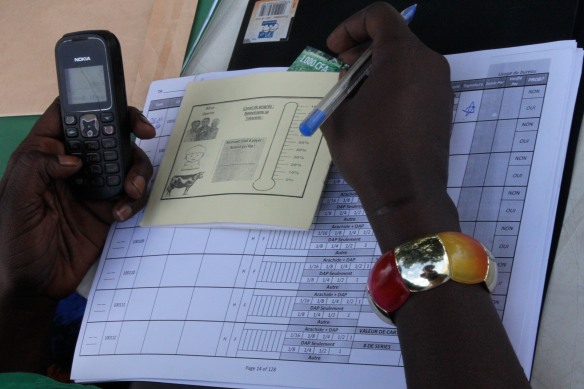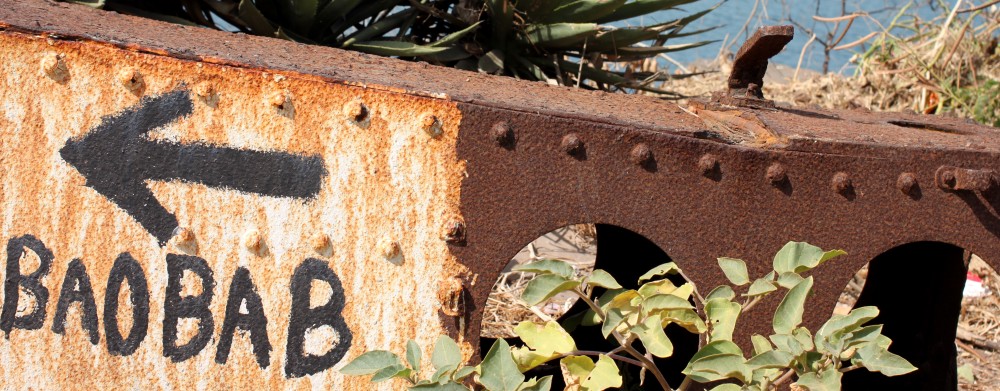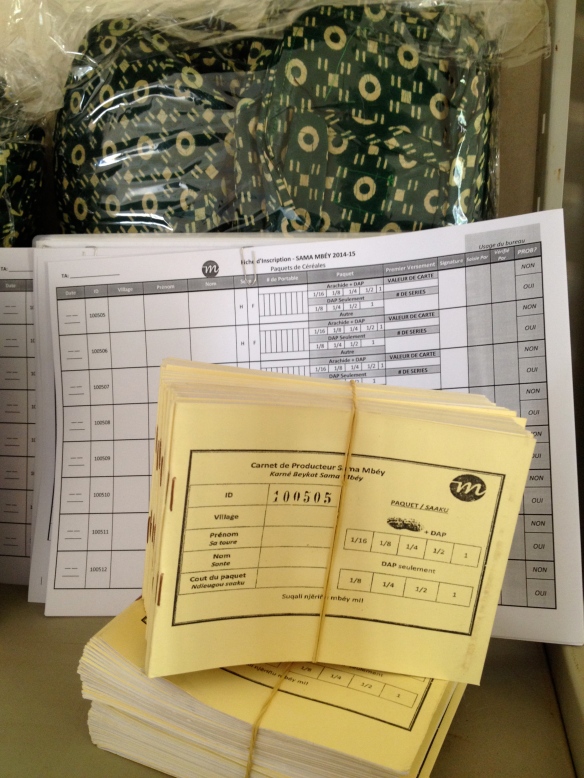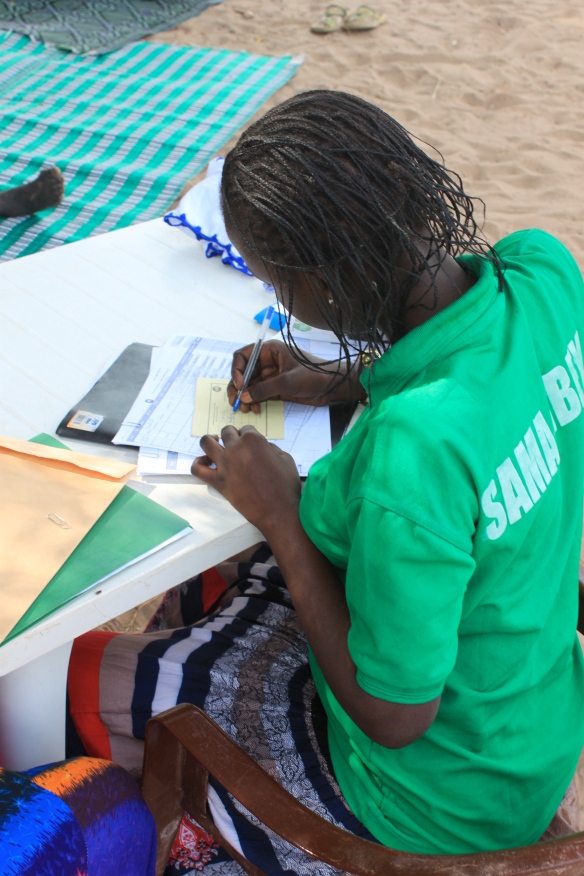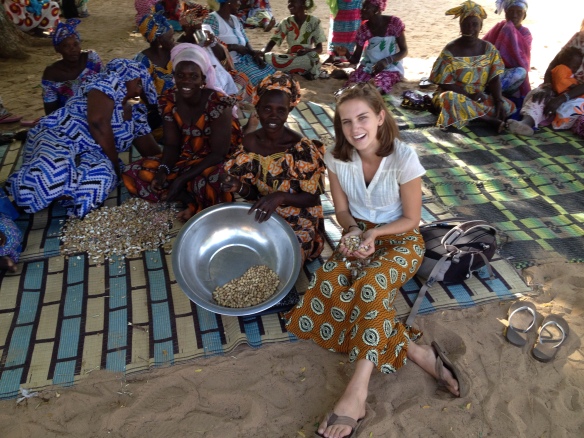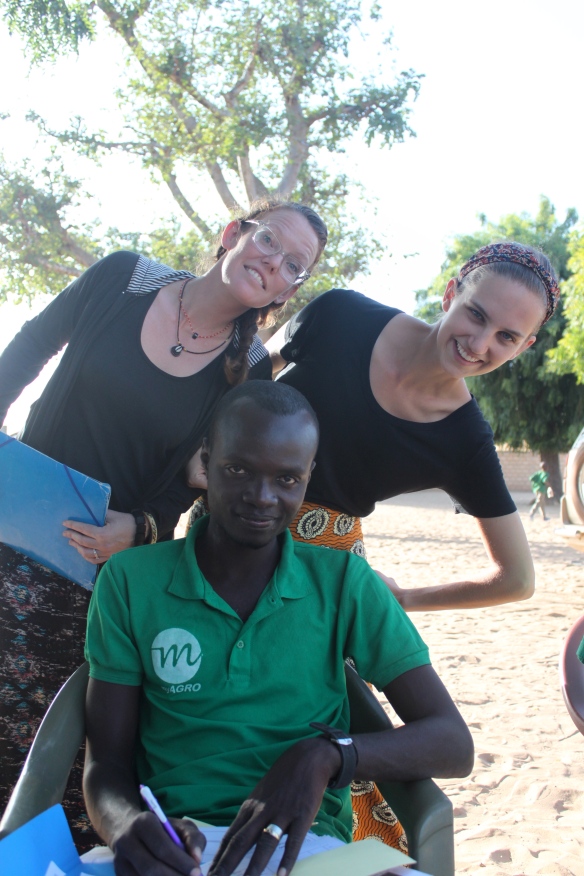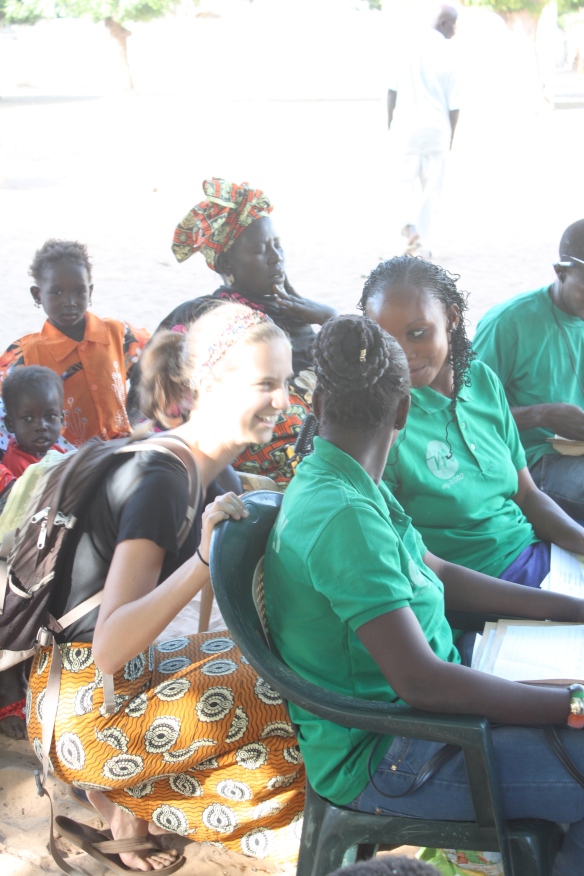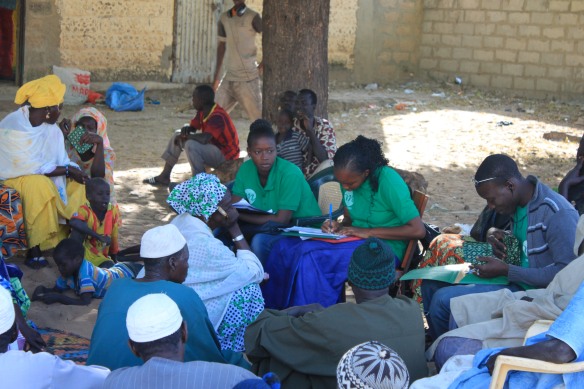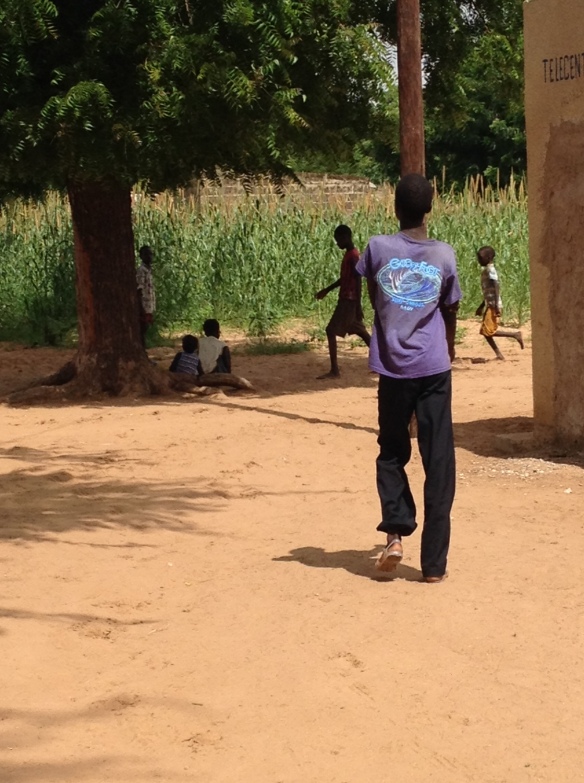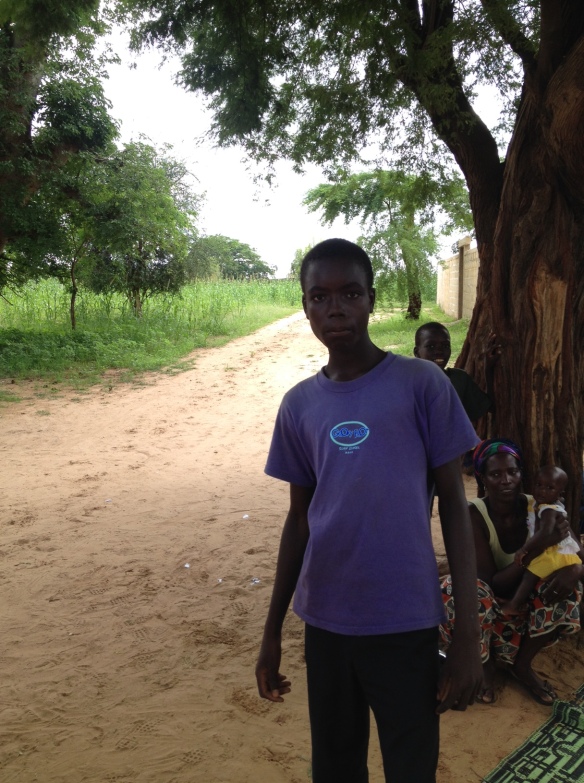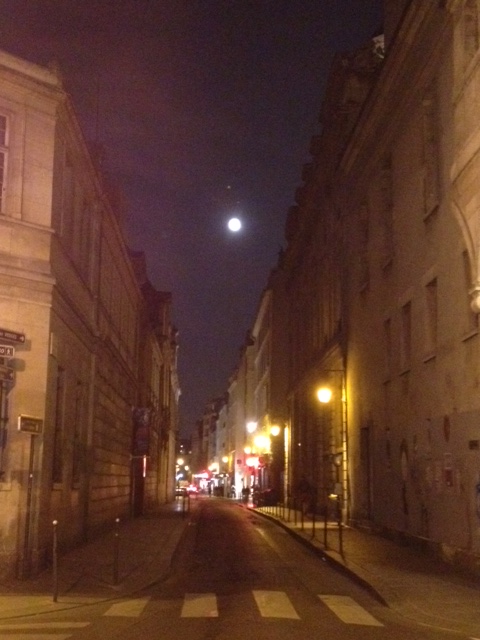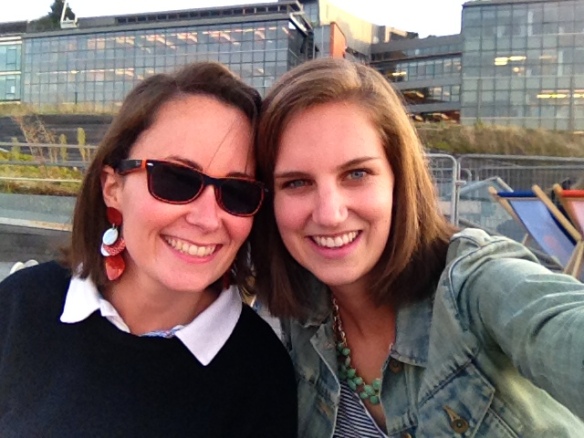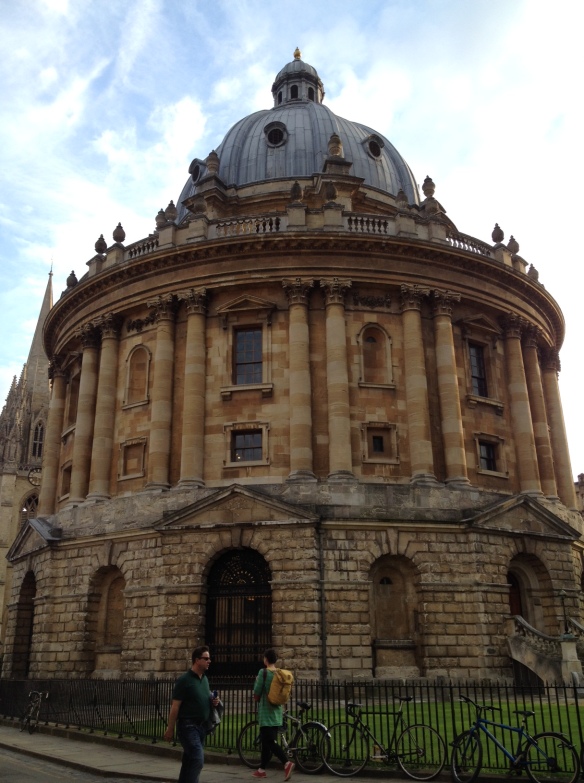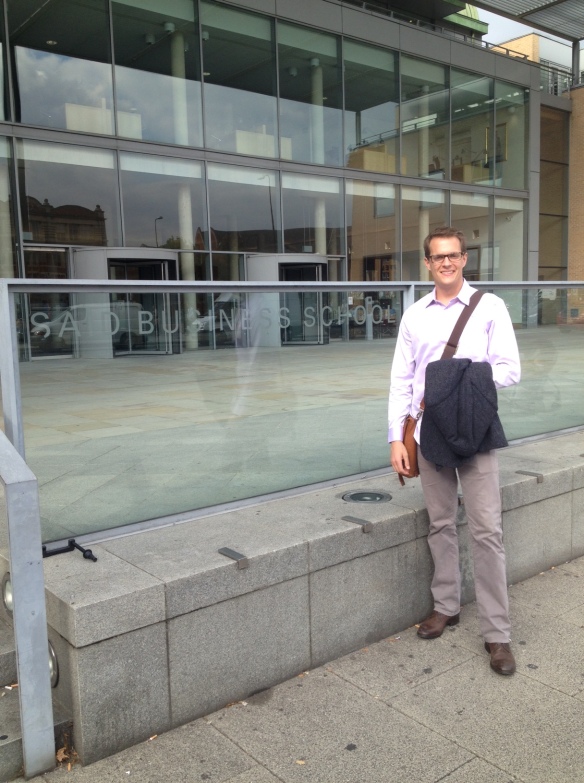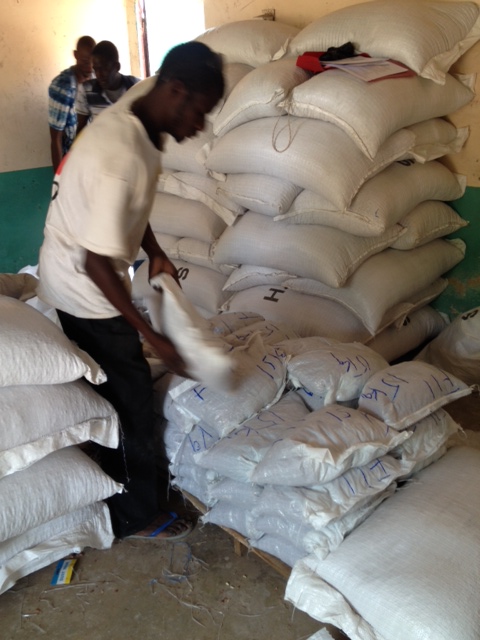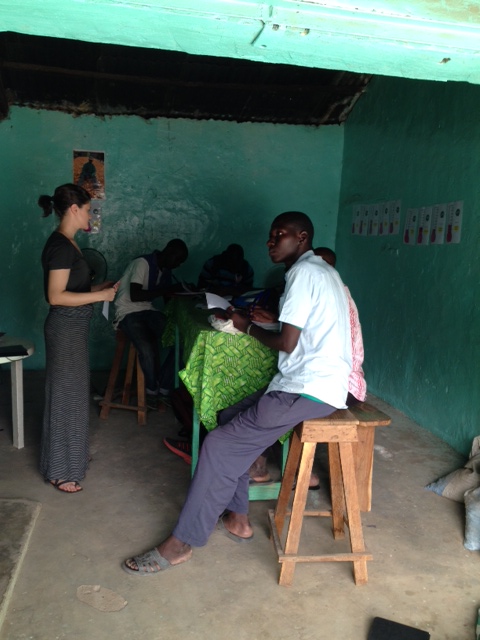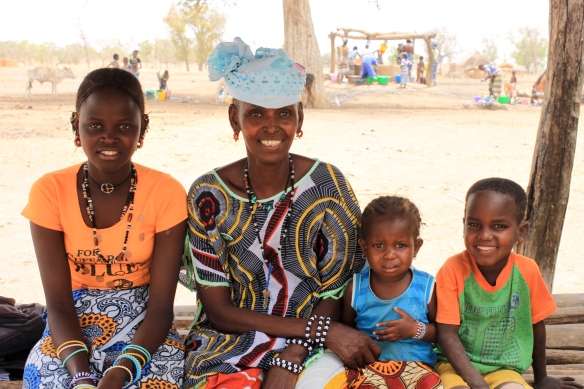Guest post by the coolest parents in the entire world, who trekked throughout six different cities with me for two weeks without a complaint. They confirmed some of my observations and offered a whole new perspective that I immensely appreciate. Thank you for everything!
“We’re not in San Jose anymore.” That was obvious, not only because of the long flights to get to Senegal, but because of the surprising, funny and endearing daily occurrences that make up Emily’s life in West Africa. Here are a few:
Diet Supplements: “What are you making?” I asked Emily in the kitchen as we prepared a meal in Tamba and she shook rice in a screen strainer.
“I’m straining out the bugs from the rice. I use a flour sifter for flour to do the same,” she answered matter-of-factly. I did not inspect the post-shake strainer, which she emptied into the trash. See?! I wasn’t lying 🙂
“Toubab”: No matter where you were, from village field to city center, yells of “Toubab” followed us everywhere. Ambivalently used by children and teenagers to call attention to any person with light skin, the response depends on where you are. Most of the time you just smile and wave at the kids yelling it at you, and they giggle and hide behind their mother’s skirt or jump inside a door. After a while we found that we had tuned the word out.
Dust that Table: Little piles of fine clay-colored dust were everywhere inside. Dust from the ubiquitous dirt roads? Nope. Termite dust, swept away without a blink by Emily and her colleagues.
Fly by Night: About the only time we weren’t surrounded by flies was at night. Emily and her colleagues did not even notice the flies landing on everything, from food and dishes to glassware.
Want Hot Water? No problem. With the heat index around or over 100 degrees 24/7, all the tap water was hot – not just warm – all the time.
Cut Short that Shower: We saved water without any effort, really. The water service could suddenly stop for a few minutes or hours while soaping up or prepping a meal. Another way to shorten a shower is to barely nudge the water pipe taking water to the shower head, and it all falls off the wall. Shower over.
New Meaning of a Shared Meal: Emily’s co-workers invited us to share lunch in their office. We gathered office chairs around a small green bench, where two large flat metal platters full of a rice dish had been placed. They passed out spoons to each of us and the eight of us all dug in – on the same plate. You eat the section of food in front of you, flicking anything you don’t want into the center of the plate. Handy, and very few dishes to wash!
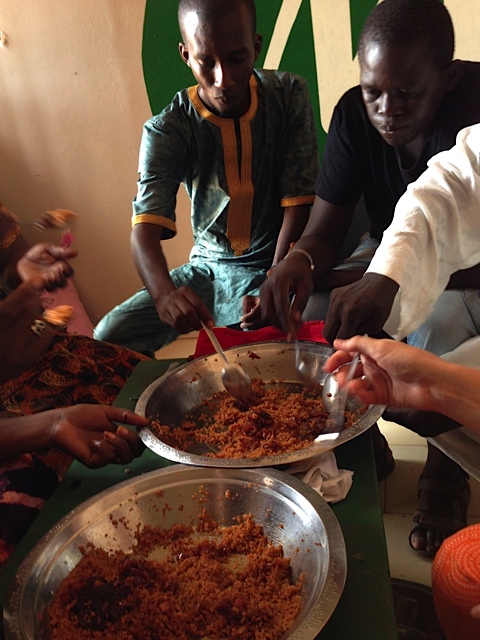
Negotiate: Everything is negotiable, partly because most people selling wares think Toubabs have unlimited money (which actually seems true compared to the financial condition of most Senegalese). Without hesitation, Emily and Aeschlinn would question a high price given by a cabbie (whether car or donkey cart taxi), vendor or even their own driver.
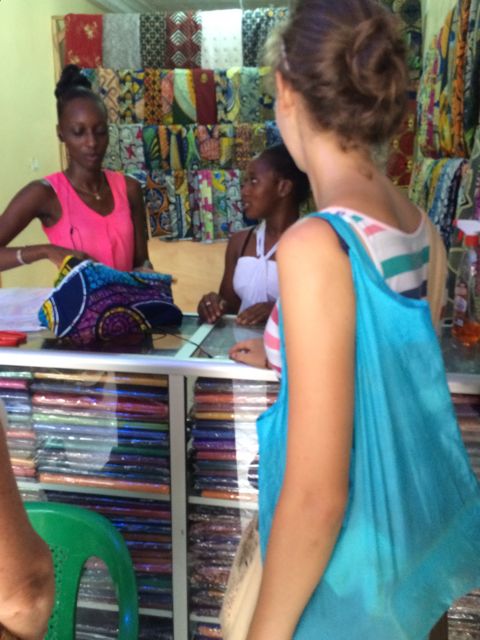
For good reason: most times prices quoted were 4 or 5 times the going rate. Emily would remind us not to set a precedent as the next Toubab along might be another penniless NGO volunteer. We learned how to haggle in French and a little Wolof, but we didn’t mind paying a little more than normal…
Sheep or Goat? Emily liked to make us guess if the animals we ran into (literally sometimes) in the street were sheep or goats. Both species were shaved close so it was tough for us to tell them apart sometimes.
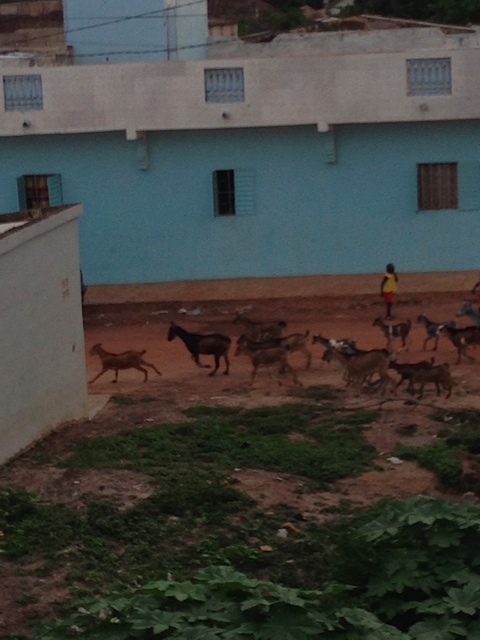
No Knees Showing: The ladies could be inside Emily’s apartment wearing shorts, but as soon as they were going to step outside the front gate, they put on a long skirt to cover their legs. Emily has a long wrap-around skirt at the ready, and can put it on in a swoosh, not breaking stride on the way out the door.
280 Mile Cab Rides: Going from one place to the next is possible only on over-crowded, poorly maintained buses or “sept places” which are very rundown cars with an extra seat to carry 7 passengers. Skeletons of wrecked buses and sept places litter the highway shoulders. So a cab is the best way, and we hired cabs for 8 minute rides as well as 8 hour rides to another city. And only after checking the tires and general condition of the cab.
Pot Holes: Emily didn’t think twice about our cab slowing to 2 miles an hour while dodging foot-deep pot holes and oncoming trucks on the national highway. Sometimes vehicles would pass going in opposite directions on the wrong side of the road. You simply drove wherever you could find a flat piece of road.
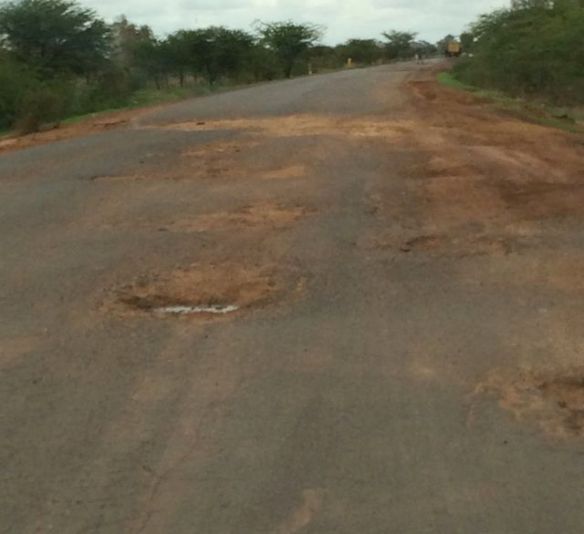
Walking at Night: With no streetlights and little to no electricity in buildings or homes, walking in the very dark night with a small flashlight might have made us nervous. But we never felt threatened or insecure in Tambacounda, no matter what time of day or evening.
Just watch out for uncovered manholes.
Street Food: Emily and her colleagues would walk down the street and buy a bread and bean or a chicken sandwich from women cooking over charcoal stoves in spindly wooden stalls. We did that once, and paid the price. But it was worth it as part of experiencing the life of Emily.
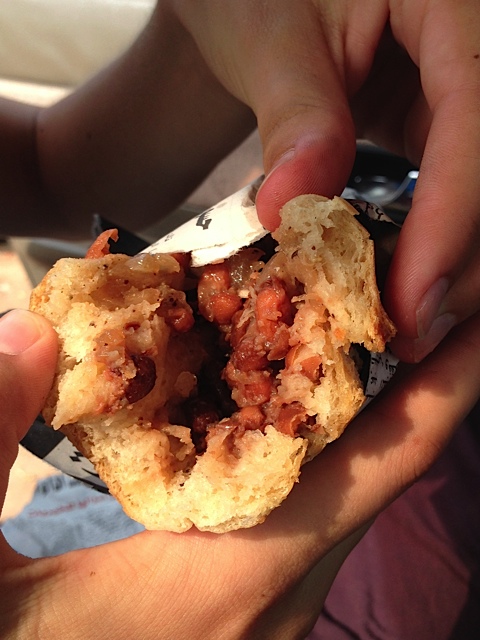
The Heat: It’s hot in Senegal – usually stiflingly hot. Even though our iPhone weather app said the temperature was 95, it quite correctly said the heat index was 108. Only the bedrooms (in hotels and Emily’s house) seem to be air conditioned, so even the hallways feel like a blast heater. We found ourselves lunging for the bedrooms every chance we got. Emily – not so much. She’s used to the heat, and even goes for jogs in the “cool” of the morning or evening, when she’s not using a car axel on the roof as an exercise barbell.
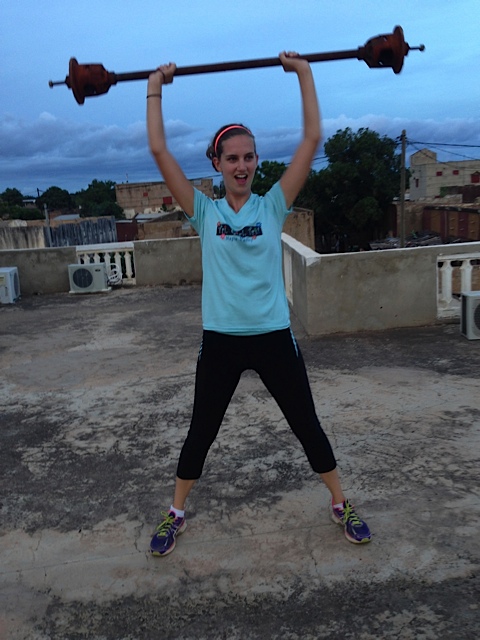
Honoring Prayers: The guard who sat inside the gate at the Tamba duplex would pray 5 times a day on a mat by the gate. It is rude to walk between Mecca and someone praying – unless the person puts a shoe in front of him, which the guards usually did.
The Meaning of Horn: While Wolof and French are the primary languages we heard spoken, a third language could never be ignored: The taxicab horn.
If we had offered a cabbie a fare that he initially refused, we’d turn away and start to wave down the next cab. “Wait for it,” Emily would say. And 75% of the time, the cabbie would quickly reconsider, give a little beep of his horn in acceptance, we’d climb in and off we’d go.
We also found a cab in motion with passengers will honk at every opportunity, even at phantom people and animals on rural roads. This is even more prevalent if the taxi has a unique horn. In the first 45 minutes leaving Tamba for Thies, our driver honked over 100 times before we lost count.
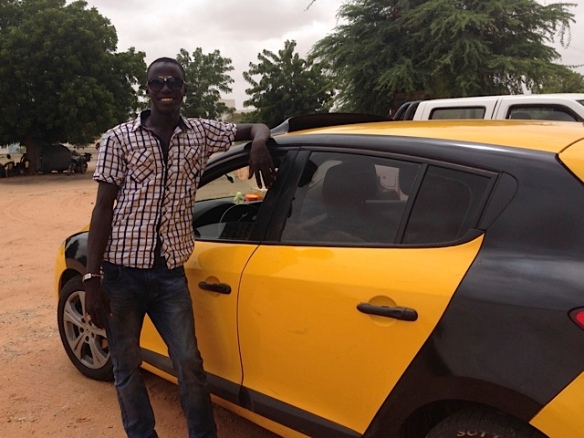
Just Another Day
A noise as if a metal chair was being scrapped against the wall got our attention at the Tamba apartment. A big mystery until I looked behind the refrigerator and saw that the fan had popped out of the back of the fridge and was banging around on the floor. So no fridge, and no stove (no gas).
You guys are such troopers! Can’t wait to visit YOU somewhere cool in the next two years. Remember our agreement?!
